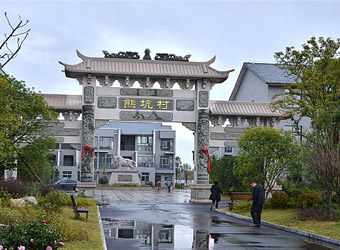China’s real estate investment growth sped up during June after slowing in May, suggesting investment in the sector remained resilient even as the government has sought to tame soaring property prices by slapping a flurry of restrictive measures.
Growth in property investment, which mainly focuses on residential but also includes commercial and office space, accelerated to 7.9 percent in June from a year earlier, compared to a 7.3 percent expansion in May, according to Reuters calculations based on data from the National Bureau of Statistics (NBS).
Real estate investment is a major driver of the economy affecting more than 40 other sectors. But worries over the potential bursting of price bubbles in China’s biggest cities have led to a raft of government cooling measures in recent months, as buyer demand appeared to be more resilient than expected.
The area of property sold grew 16.1 percent in January-June from the same period a year earlier, up from 14.3 percent in the first five months of the year, the NBS said.
In June alone, sales grew 21.4 percent, more than double the 10.2 percent increase in May, Reuters calculations showed.
New construction starts measured by floor area, a telling indicator of developer confidence, rose 10.6 percent in the first half of the year, accelerating from a 9.5 percent rise in the first five months, the bureau said.
In June alone, new starts rose 14.0 percent, the highest since October 2016, according to Reuters calculations. Policymakers have prioritized stabilizing an overheated property market ahead of a Communist Party reshuffle later this year, reiterating the need to avoid dramatic price volatility that could threaten the financial system and harm social stability.
In spite of government efforts to curb property prices, household loans – mostly mortgages – rose to 738.4 billion yuan in June from 610.6 billion yuan in May, according to Reuters calculations based on data recently released by China’s central bank.
A survey by China’s central bank in late June showed that 31.2 percent of households expect housing prices to rise in the third quarter of this year, while 46.1 percent of households tipped them to remain basically unchanged.
Growth in inventory floor area in the first half was 9.6 percent lower than one year earlier, compared with a fall of 8.5 percent in the January-to-May period.
Source: Reuters


